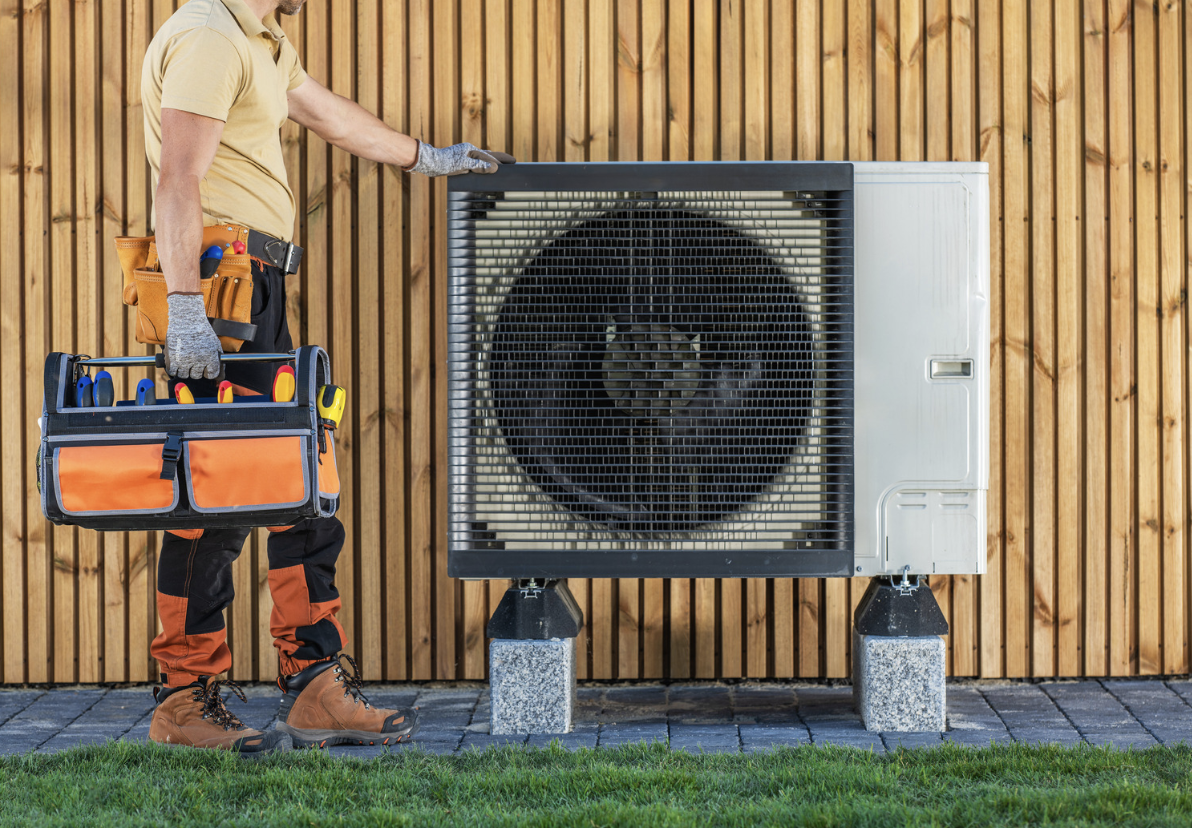In today’s energy-conscious world, homeowners are increasingly seeking ways to enhance their indoor comfort while reducing energy costs. One effective solution is the implementation of zoning systems for HVAC (Heating, Ventilation, and Air Conditioning). These systems allow for tailored temperature control in different areas of the home, leading to improved comfort and energy efficiency. This article will explore the concept of HVAC zoning, its benefits, functionality, installation considerations, and its role in creating an optimal living environment.
What Is HVAC Zoning?
HVAC zoning is a system that divides your home into distinct areas or “zones” that can be heated or cooled independently. Each zone is equipped with its own thermostat, allowing for precise temperature control tailored to individual preferences. This zoning allows homeowners to address specific heating and cooling needs based on the unique characteristics of each space, resulting in a more comfortable and energy-efficient home.
How Zoning Works
Understanding how zoning systems function is crucial to appreciating their benefits. Here’s a breakdown of the components and mechanics:
- Ductwork Modification – To implement zoning, modifications to existing ductwork are necessary. This involves the installation of dampers within the duct system, which can open or close based on the temperature settings of each zone.
- Thermostat Control – Each zone is equipped with its own thermostat, which communicates with the central HVAC unit. When a specific zone reaches its desired temperature, the thermostat signals the system to either heat or cool that area without affecting the other zones.
- Central Control System – A central control panel may be installed to provide homeowners with the ability to monitor and adjust settings for each zone from a single location. This can enhance usability and convenience, particularly in larger homes.
The Importance of Zoning in Modern Homes
In modern homes, the design and layout can significantly impact heating and cooling efficiency. Factors such as room size, orientation, and the presence of windows can create variations in temperature throughout the house. Zoning systems address these variations, allowing for personalized climate control.
The Benefits of HVAC Zoning
The implementation of an HVAC zoning system offers numerous advantages, enhancing comfort, energy efficiency, and overall home value. Let’s explore these benefits in detail.
1. Improved Comfort
The primary benefit of HVAC zoning is the ability to maintain consistent temperatures throughout your home, addressing the unique needs of different spaces
- Individualized Temperature Control – Different rooms may require different temperature settings. For example, a bedroom might need to be cooler for optimal sleep, while a living room may require a warmer atmosphere for relaxation. With zoning, each space can be adjusted according to individual preferences.
- Addressing Temperature Variations – Homes with multiple stories often experience temperature discrepancies between levels. Zoning allows for targeted heating and cooling, ensuring comfort in both upstairs and downstairs areas, regardless of the overall home temperature.
- Seasonal Comfort Adjustments – As seasons change, so do comfort needs. With zoning, you can easily adapt to seasonal variations by adjusting the temperature in specific areas without affecting the entire home.
2. Enhanced Energy Efficiency
Energy efficiency is a significant consideration for modern homeowners, and zoning systems can dramatically improve it:
- Reduced Energy Waste – Traditional HVAC systems often operate under the principle of conditioning the entire house, leading to energy waste. Zoning systems allow you to heat or cool only the rooms that are in use, significantly reducing unnecessary energy consumption.
- Optimal Usage of HVAC Equipment – By running the HVAC system less frequently, zoning can prolong the lifespan of the equipment, resulting in fewer repairs and replacements. This translates into both direct financial savings and reduced environmental impact.
- Energy-Efficient Design Considerations: Many zoning systems integrate with energy-efficient HVAC units, such as variable-speed systems and high-efficiency furnaces. These units work harmoniously with zoning technology to further enhance energy savings.
3. Cost Savings
The financial advantages of implementing an HVAC zoning system can be substantial
- Lower Utility Bills – By providing better control over heating and cooling needs, zoning systems can help homeowners achieve noticeable reductions in their monthly utility costs. Many homeowners report savings of 20% or more after switching to a zoning system.
- Potential for Tax Credits – In some cases, homeowners may qualify for tax credits or rebates for upgrading to energy-efficient HVAC systems that include zoning capabilities. Always check with local energy authorities for potential savings opportunities.
- Increased Property Value – An energy-efficient home with advanced HVAC technology, such as zoning, can attract potential buyers. Many homebuyers prioritize energy efficiency and comfort, making a zoning system an attractive feature that can increase your home’s resale value.
4. Customizable Comfort Solutions
Zoning systems allow for unprecedented customization when it comes to home comfort:
- Addressing Diverse Family Needs – Families often have varying preferences when it comes to indoor temperature. With multiple zones, family members can customize their comfort settings without compromising the comfort of others. For instance, while one person prefers a cooler bedroom, another may desire a warmer atmosphere in the living room.
- Adaptability for Changing Needs – Zoning systems provide flexibility to accommodate changes in lifestyle or occupancy. If you have guests, you can adjust the zones they will be using without affecting other areas. This adaptability makes zoning systems suitable for homes with fluctuating occupancy, such as those with frequent visitors.
5. Enhanced Air Quality
Zoning systems contribute to improved indoor air quality, which is essential for overall health and comfort:
- Reduced Allergens and Pollutants – By preventing the overcooling or overheating of rooms, zoning can help minimize the circulation of dust, pollen, and other allergens. This is particularly beneficial for individuals with allergies or respiratory issues.
- Improved Ventilation – Zoning systems allow for better air circulation, helping to reduce stagnant air and promote better ventilation. This leads to fresher indoor air, free from odors and allergens.
- Humidity Control – In addition to temperature control, zoning can help manage humidity levels in different areas of the home. Proper humidity control is essential for comfort and can prevent mold growth, contributing to a healthier living environment.
6. Smart Technology Integration
Many modern zoning systems are compatible with smart home technology, providing homeowners with enhanced control over their indoor climate:
- Remote Access – Smart thermostats allow you to control your zoning system from anywhere using a smartphone app. This means you can adjust temperatures before you arrive home or even while you’re on vacation, ensuring your home is always at a comfortable temperature when you need it.
- Automation and Scheduling – Smart zoning systems can be programmed to adjust temperatures based on your daily schedule. For instance, you can set the system to cool the house before you return from work or warm it up for the morning. This automation not only enhances convenience but also promotes energy savings by adjusting settings when you’re not home.
7. Increased System Lifespan
Zoning systems can help extend the lifespan of your HVAC equipment:
- Reduced Strain on Equipment – By allowing for more efficient operation and reducing wear and tear, zoning systems can help extend the lifespan of your HVAC equipment. This is especially beneficial for older systems that may be more susceptible to failure.
- Preventative Maintenance Opportunities – With individual zones, maintenance can be more targeted. Homeowners can monitor and maintain specific zones based on usage, allowing for timely repairs and upkeep that can prevent larger issues down the road.
Considerations for Implementing a Zoning System
While zoning systems offer many benefits, there are important considerations to keep in mind before installation
1. Initial Costs
The upfront cost of installing a zoning system can be higher than traditional HVAC systems due to the required modifications to ductwork and the installation of additional thermostats. However, many homeowners find that the long-term energy savings justify the initial investment.
2. Professional Installation
Installing a zoning system requires expertise. It’s crucial to hire a qualified HVAC professional to ensure proper installation and functionality. Improperly installed systems can lead to inefficiencies and comfort issues, negating the benefits of zoning.
3. Maintenance Requirements
Zoning systems may require additional maintenance compared to traditional systems. Regularly check and change filters for each zone to ensure optimal performance. Discuss maintenance needs with your HVAC provider to keep your system running smoothly.
4. Potential Limitations
Zoning systems may not be suitable for every home. If your home has a single-story layout or lacks ductwork, a zoning system might not be the best fit. Consult with an HVAC expert to determine the best solution for your specific situation.
5. Balancing Airflow
Proper airflow is essential for the effectiveness of a zoning system. If airflow is restricted in one zone, it can impact the performance of the entire system. Regular maintenance and adjustments may be needed to ensure balanced airflow across all zones.
HVAC zoning systems offer a range of benefits that can significantly enhance your home’s comfort, energy efficiency, and overall quality of life. By allowing you to control the temperature in individual zones, these systems provide tailored heating and cooling solutions that cater to the needs of every family member.
While the initial investment may be higher, the long-term savings on energy bills, improved air quality, and increased home value make HVAC zoning an attractive option for many homeowners. As you consider your heating and cooling needs, don’t overlook the advantages of implementing a zoning system as a smart home comfort solution.







